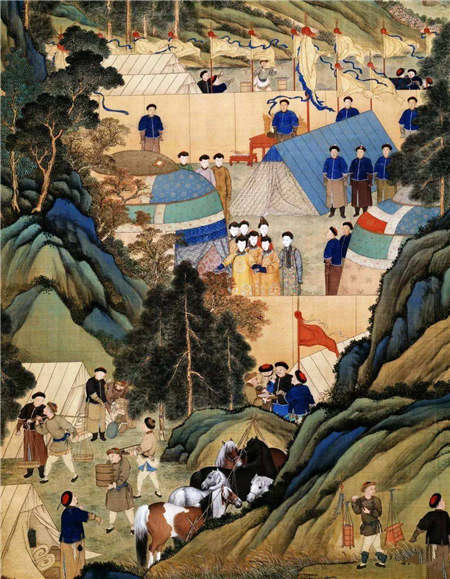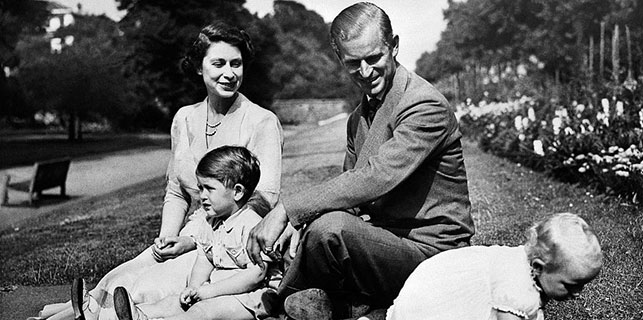Men on a mission
 |
|
Part of a painting by Giuseppe Castiglione, featuring a royal outing. [Photo provided to China Daily] |
The suspicion and antagonism, once dipped in the gall of court politics-could be fatal. Late in his life, the Qing court sentenced Schall von Bell to death. This was after the death of Emperor Shunzhi, father of Kangxi, who died at the young age of 23 and whose respect for von Bell's counsel was such that he called the old man "mafa", or grandpa.
The sentence was never carried out. An earthquake in Beijing sent an alarm to the powerful Empress Dowager Xiaozhuang, mother of Shunzhi and grandmother of Kangxi, who intervened on von Bell's behalf.
"The incident that ultimately led to von Bell's death, soon after, in 1666, is believed to have had a lot to do with the intense power struggle triggered by the death of Emperor Shunzhi five years earlier," Li says. "A few years later, von Bell saw a posthumous restoration of fame, partly thanks to his peer Ferdinand Verbiest, who came out triumphantly in a showdown with the Chinese scholar and astronomer Yang Guangxian, and partly because of a change of the political climate at court."
The contest, in which the two sides were required to predict the length of the sun's shadow at midday, went ahead at the order of Emperor Kangxi. Verbiest's win heralded a 200-year period during which Western missionaries in effect controlled what was known as the Qing Empire's Astro-Calendric Bureau.
It is worth noting that while the 74-year-old von Bell was in prison, Verbiest was at his side. He still is today, since the tombstones of the pair are separated only by the one belonging to Ricci, in whose footsteps they all followed.


















